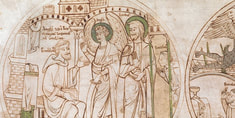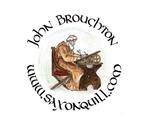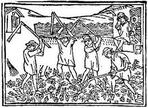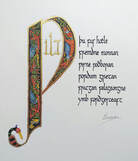REFLECTIONS ON ORIGINALITY AND AUTHENTICITYTowards the end of my latest novel, my beta reader who follows me chapter by chapter made a comment that set me thinking. He said, that episode reminds me of the Murder in the Cathedral. Yes, except that the incident concerned happened some 275 years earlier! Which brings me to my point. Upon listening to the audiobook of my Perfecta Saxonia, an American troll gave it a 1-star review – (all the others are 5-star) claiming that it was plagiaristic- a poor copy of Bernard Cornwell. Much as I like and respect Bernard’s books, I would never knowingly copy him and I’m very careful about such things. All my work is original unless I quote. What the American confused was a person writing about the same historical events: the poor chap couldn’t distinguish the difference of plot and style evidently. But I wish to make the point that creating an original Dark Ages novel that has not been well dealt with by someone else is tricky. When I finished my St Cuthbert Trilogy, I had half a mind to have a go at writing about the fascinating Saint Dunstan – that proved a non-starter because it had just been done extremely well and was published last year. No problem, I’ve found another avenue for a new trilogy, but the fact is that so many Dark Age personages have been covered. Here I could write a long list of characters I’ve wanted to write about but rejected on the grounds that they’ve been well covered by others – first among these the Lady of the Mercians – Aethelflaed – a fascinating woman. Maybe one of the problems of originality when writing about the Anglo-Saxon period is the lack of documentary material. We have The Anglo-Saxon Chronicle and Bede to guide us but that’s about it and even they are not necessarily without bias. The answer is to break away from great personages as much as possible: my recent work has centred on more humble characters like a leather worker, a scribe, a stone mason and so forth. They encounter the great, literally, as my scribe-scholar rubs shoulder with King Alfred in my latest novel. I was amused by a recent excellent review, where the reviewer touched on the humility of the two main characters in The Master of the Chevron because while it’s true that we know little or nothing about the first master mason of Durham Cathedral, we know a lot about Prior Thurgot, thanks also to an almost contemporary account of his life. It meant a lot to me that I had been able to introduce this exceptional monk to a modern-day reader who probably had never heard of him. I think that the fun of writing about the Anglo-Saxons is trying to travel back in time mentally to capture the life in those days as much as possible. I fear that attempts at originality can be dangerous in terms of respecting authenticity. But worrying about that helps me to be a better writer. We all have to deal with trolls apparently. I’m lucky to only have had one!  Get a free eBook!Join my newsletter & receive a free digital copy of Heaven in a Wildflower, book 1 of my St. Cuthbert Trilogy, as well as monthly news, insights, historical facts, & exclusive content delivered straight to your inbox! Thank you!You have successfully joined my mailing list!
0 Comments
Leave a Reply. |
To buy your copy of Rhodri's Furies click the link below:
https://www.amazon.co.uk/Rhodris-Furies-Ninth-century-Resistance-incursions-ebook/dp/B0BPX9C2D3/ |




